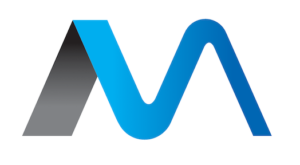I have always found Swiss numbered bank accounts fascinating. For decades, movies and novels have portrayed these accounts as secretive wealth havens. Today, I see that their reality is far more complex. In this post, I will guide you through the evolution, regulatory framework, and current status of Swiss numbered accounts while debunking myths and sharing my personal insights.
The Intriguing History and Concept of Swiss Numbered Accounts
In the early 1910s, Swiss banks introduced numbered accounts to add an extra layer of privacy. Banks replaced a client’s name with a multi-digit number known only to the client and a few trusted bankers. Although account statements display only this number (and sometimes a code name), banks record the client’s true identity. This method works much like tokenization in mobile payments and credit card networks, which protect sensitive data without granting complete anonymity.
The 1934 Swiss Banking Law, especially Article 47, built Swiss banks’ reputation for strict confidentiality. Many people assume this law aimed solely to protect assets during political turmoil, but research shows it also helped banks attract capital during economic pressures. Over the decades, both legitimate privacy needs and controversial uses—such as tax evasion—have linked to these accounts.
Understanding the Modern Legal and Regulatory Landscape
Today, a mix of traditional banking secrecy and international transparency requirements governs Swiss numbered accounts. I noticed that evolving regulations—like Know Your Customer (KYC) and Anti-Money Laundering (AML) measures—have reshaped these accounts.
Key Regulatory Features
- Strict KYC and AML Measures:
When you open a Swiss bank account, including a numbered one, banks require you to complete an extensive clearance process. You must provide a valid ID, proof of address, and documents verifying the lawful origin of your funds. Banks do not tolerate fake names or attempts to hide true identities. - Role of FINMA:
The Swiss Financial Market Supervisory Authority (FINMA) actively oversees banks and enforces national laws and international agreements. Even though your account carries a number, banks always know your true identity. - International Transparency Agreements:
Agreements like the Automatic Exchange of Information (AEOI) and the Foreign Account Tax Compliance Act (FATCA) have transformed Swiss accounts. Tax authorities in over 100 countries, including the United States, now receive information on Swiss numbered accounts, which ensures that secrecy no longer means illegality.
The Reality of Opening a Numbered Account Today
In my research, I discovered that opening a Swiss account with numbered option in the 2020s no longer resembles a secretive back-alley deal. Instead, banks now follow a rigorous process that demands full transparency and accountability.
The Process in a Nutshell
- In-Person Verification:
Most banks require you to visit a branch personally. This face-to-face meeting verifies your identity more securely. - Comprehensive Documentation:
You must present documents such as your passport, proof of address, and evidence that your funds come from a lawful source (for example, employment contracts or investment statements). - High Financial Requirements:
Banks design these accounts primarily for high-net-worth individuals. Minimum deposits can range from CHF 10,000 to over CHF 1,000,000, and banks charge annual fees between CHF 1000 and CHF 1500. - Limited Availability:
Many banks no longer open new numbered accounts. Even if you meet all requirements, you might find it challenging to locate a bank that still offers this service.
Debunking the Myths: Anonymity and Secrecy in Focus
I encountered a persistent myth that Swiss numbered accounts offer complete anonymity. In reality, although they provide an extra layer of privacy within the bank, they do not shield you from legal and tax authorities.
- Internal vs. External Secrecy:
Within a bank, only a few trusted employees know your true identity. Yet Swiss law obliges banks to maintain detailed records and share information with regulators when necessary. - Enhanced Transparency:
International measures like AEOI and FATCA ensure that no account can hide assets indefinitely. Authorities impose strict penalties on anyone who uses these accounts for illicit purposes, such as tax evasion or money laundering.
A Comparative Look: Swiss Numbered Accounts and Their Global Counterparts
Although Switzerland remains famous for numbered bank accounts, other countries like Andorra, Austria, and Liechtenstein offer similar products. I created the table below to highlight their key differences and similarities:
| Feature | Switzerland | Andorra | Austria | Liechtenstein |
|---|---|---|---|---|
| Definition | Banks replace your identity with a multi-digit number known only to you and select bankers. | Banks identify your account by a number and historically offered this service without disclosing names. | Banks use a number instead of displaying your name. | Banks identify your account by a number rather than your name. |
| Availability of New Accounts | Many banks have stopped offering new numbered accounts. | Non-residents can open accounts under strict compliance, although the availability remains unclear. | Banks still offer numbered accounts. | Banks still offer numbered accounts. |
| Key Regulatory Body | The Swiss Financial Market Supervisory Authority (FINMA) regulates these accounts. | The Autoritat Financera Andorrana (AFA) regulates these accounts. | The Financial Market Authority (FMA) and Austria’s National Bank (OeNB) regulate these accounts. | The Liechtenstein Financial Markets Authority (FMA) regulates these accounts. |
| KYC/AML Requirements | Banks require multi-stage clearance, proof of lawful asset origin, and they report any suspicious activity. | Banks require proof of ID, address, solvency, and source of funds while enforcing strict AML/CTF compliance. | Banks thoroughly vet clients and demand transparency regarding the beneficial owner. | Banks perform detailed due diligence and identify beneficial owners. |
| Participation in AEOI/CRS | Banks share account information with over 100 countries. | Banks implement CRS and automatically share non-resident information. | As an EU member, Austria likely complies with EU transparency regulations. | Banks participate in CRS through EEA membership. |
| Compliance with FATCA | Banks report US account holders to the IRS. | An updated mutual exchange agreement takes effect from 2027. | Austria complies with international tax agreements. | Banks follow updated FATCA reporting guidance. |
| Banking Secrecy for Non-Residents | Secrecy remains low because AEOI and FATCA require extensive information sharing. | Secrecy remains low since banks share non-resident information under CRS. | Secrecy is moderate as banks maintain confidentiality with exceptions for tax authorities under specific conditions. | Secrecy remains moderate; banks share information under CRS and FATCA when required. |
| Typical Fees | Banks charge high fees. | Banks charge high fees to cover significant commissions. | Fees likely match those of other private banking services. | Fees likely compare to other wealth management-focused services. |
| In-Person Opening | Banks usually require you to open your account in person. | Banks usually require you to appear in person. | Banks typically prefer an in-person opening for security. | Banks generally require in-person meetings given their private banking focus. |
| Minimum Deposit | Minimum deposits generally range from CHF 10,000 to over CHF 1,000,000. | Deposit requirements vary; personal accounts may require lower thresholds, while private banking demands higher investments. | Deposit requirements depend on the bank and account type. | Private banking may require higher deposits, especially for wealth management services. |
Table: A comparative overview of Swiss numbered accounts and similar products in other jurisdictions.
Conclusion: The Truth Behind Swiss Numbered Accounts Today
After analyzing the current landscape, I can confidently say that you can still obtain a Swiss numbered bank account, but regulators now limit their availability. Banks now demand full regulatory compliance and transparency. Although these accounts once symbolized absolute secrecy, they now offer extra privacy only within a bank’s internal operations. International agreements such as AEOI and FATCA now require banks to share account information with tax authorities.
I believe that Swiss numbered accounts serve as a valuable tool for those who seek legitimate financial privacy and asset protection. However, total anonymity remains a myth—a change driven by global efforts to increase transparency.



